投稿者: 司 宮二
ーーー
【共同声明】橋下発言に強く抗議・世界各国のNGO68団体が緊急声明発表
http://hrn.or.jp/activity/topic/ngo68/
NGO共同声明
2013年5月23日
市民社会は、橋下大阪市長による「従軍慰安婦」に関する発言に対し、強く抗議する。
1.5月13日、大阪市長であり、50人以上の国会議員を擁する日本維新の会の共同代表である橋下徹氏は、第二次世界大戦中のいわゆる「従軍慰安婦」制度が軍の規律を維持し、兵士に休息を提供するために必要だったと発言した。
橋下氏は「あれだけ銃弾の雨嵐のごとく飛び交う中で、命かけてそこを走っていくときに、そりゃ精神的に高ぶっている集団、やっぱりどこかで休息じゃないけども、そういうことをさせてあげようと思ったら、慰安婦制度ってのは必要だということは誰だってわかる」と記者団に語った。
同時に彼は、当時の日本政府が慰安婦を強制連行した証拠はないと言及した。
私たち、下記の国際NGO、アジア地域および他の地域のNGO68団体は、重大な女性の人権侵害を正当化しようとするこの言語道断の発言に対し、強く抗議する。
2.「従軍慰安婦」は、第二次世界大戦中、日本軍がアジア各地の「慰安所」その他の場所で、旧日本軍による広範かつ組織的な性的な暴力を受けてきた被害者である。韓国、中国、フィリピン、インドネシア、オランダ、その他の国と地域の女性達が犠牲となった。
被害者たちは拘束状態に置かれ、旧日本兵により性交渉を強要され、性的に搾取された。女性達は、殴る、身体を刺す・焼く等、容赦ない暴力に晒され、特に抵抗した場合は残虐であった。
監禁時の取り扱いが凄惨であったために多くの女性達が命を奪われた。生存している元被害者たちも、人間の尊厳を踏みにじる取扱いを受けた結果、長年にわたり心身に極めて深刻な傷を負い続けてきたものである。
国連「女性に対する暴力」特別報告者ラディカ・クマラスワミ氏の調査報告その他の国連調査報告に正当に認定されている通り、「従軍慰安婦」制度の実態は、「性奴隷制」にほかならない。
国際刑事裁判所に関するローマ規程に明記されている通り、戦時下におけるレイプ、性奴隷制、強制買春は、「人道に対する罪」「戦争犯罪」を構成する最も深刻な国際犯罪のひとつである。
「従軍慰安婦」制度が、国際法に違反する重大な人権侵害であり、いかなる意味においても正当化・合理化できないことは明白である。
橋下氏の発言は、「慰安婦」とされた被害女性たちの心情をさらに深く傷つけている。
私たちは、橋下氏に対し、速やかに発言を撤回し、被害者に公式に謝罪するよう求める。
3. さらに懸念されるのは、慰安婦制度の強制的性格を否定する橋下氏の発言は、2007 年の第一次安倍晋三内閣の「政府が発見した資料の中には、軍や官憲によるいわゆる強制連行を直接示すような記述も見当たらなかった」とする閣議決定に端を発したものであり、橋下氏一人の問題にとどまらないことである。
「慰安婦」制度に関する調査結果に基づいて河野官房長官(当時)が1993 年 8 月 4日に公表した談話(河野談話)は「慰安婦の募集については、軍の要請を受けた業者が主としてこれに当たったが、その場合も、甘言、強圧による等、本人たちの意思に反して集められた事例が数多くあり、更に、官憲等が直接これに加担したこともあった」と公式に認めている。
また、日本の裁判例の中には「慰安婦」の強制的性格を明確に認めた判決がいくつもある。
さらに、多くの生存する被害者たちは、拉致やその他の強制的手段、例えば公式な徴用や兵士による身体拘束、暴力・脅迫などによって性的奴隷とさせられたことを「女性国際戦犯法廷」等の場で公然と証言している。慰安婦制度の強制的性格を否定することは到底認められない。
人権侵害の重大性にもかかわらず、日本政府は被害者に対する直接的な国家補償、真摯な謝罪、被害者への十分な救済措置を怠り、安倍政権下では、2007年の閣議決定を維持・公言して、慰安婦制度の強制性を否定しようとする動きもある。
こうした日本の態度は自由権規約委員会、女性差別撤廃委員会、拷問禁止委員会、ならびに国連人権理事会普遍的審査等の国連人権機関から繰り返し非難されている。
長年にわたり救済を受けてこなかった「慰安婦制度」の被害者に対して、真実を公式に明らかにし、人権侵害の事実を正面から認めたうえで公的な謝罪をすることはとりわけ求められている。
私たちは、日本政府に対し、橋下氏の一連の発言を公式に非難し、「従軍慰安婦」制度が強制的性格を有し、重大な人権侵害であることについて、留保なしに明確に再確認するよう求める。
アムネスティ・インターナショナル Amnesty international
ヒューマンライツ・ナウ Human Rights Now
反差別国際運動 The International Movement against
All Forms of Discrimination and Racism (IMADR)
ほか65団体
ーーー
Joint NGO Statement
Immediate Release, May 23, 2013
Civil society strongly condemns the recent Mayor Hashimoto’s remark on the “Comfort Women”
1. Toru HASHIMOTO, the mayor of Osaka and a co-leader of the Japan Restoration Association, a political party with over 50 lawmakers in Parliament, remarked on May 13 that the “comfort women” for the Japanese Army during World War II was “necessary” in maintaining discipline in the army and providing relief for soldiers. “When soldiers are risking their lives by running through storms of bullets, and you want to give these emotionally charged mass of fighters a rest somewhere, everyone understands that a comfort women system was necessary,” he said to reporters. He also claimed that there was no proof that the Japanese authorities had forced women into servitude.
We, the undersigned international and Asian NGOs, as well as NGOs from other region strongly condemn these outrageous comments as an attempt to defend egregious violations of women’s human rights in the name of necessity.
2. So- called Comfort Women, are those who were victimized for widespread and systematic sexual violence at “comfort stations” or other facility in Asian regions by the former Japanese Military during World War II. The victims consisted of women from Korea, China, the Philippines, Indonesia, the Netherlands and many other countries or regions. The victims were detained and forcibly subjected to continuous rape and other sexual exploitation by Japanese soldiers. Relentless violence was used, especially when women resisted, including beatings, stabbings and burnings. Coupled with the appalling conditions of detention, a large number of women lost their lives. Since the practice was completely against human dignity, survivors have been suffering grave distress both physically and psychologically for decades. As the UN Special Rapporteur on violence against women, Ms. Radhika Coomaraswamy, and another independent UN expert correctly found, the reality of the “comfort women” system was nothing less than military “sexual slavery”.[1]
Wartime rape, sexual slavery and forced prostitution are recognized as most grave violations of international human rights and humanitarian law, as the Rome Statute of the International Criminal Court explicitly stipulates “sexual slavery” and “forced prostitution” as war crimes and crimes against humanity. It is obvious that the comfort women system constitutes grave human rights violations against international law and thus should never be justified and endorsed. Hashimoto’s remark is causing further pain and distress among the survivors. We demand Mr. Hashimoto withdraw his remark immediately and publicly apologize to the survivors.
3. More disturbingly, Hashimoto’s remark to deny the forcible nature of the practice is not an isolated incident but an echo of the 2007 decision of the cabinet under the first administration of Shinzo ABE to that effect, which claimed that “so far there is no evidence of forcible mobilization of the comfort women by the military or police.”
The Statement by Chief Cabinet Secretary Yohei KONO on the Result of the Study on the Issue of “Comfort Women” (4 August 1993) already officially admitted that “[t]he recruitment of the comfort women was conducted mainly by private recruiters who acted in response to the request of the military. The Government study has revealed that in many cases they were recruited against their own will, through coaxing coercion, etc., and that, at times, administrative/military personnel directly took part in the recruitments.” A number of court judgments in Japan also clearly found the forcible nature of the practice of comfort women. In addition, many survivors and witnesses testified in public, including to the Women’s International War Crimes Tribunal that they were enslaved by abduction or other types of force, including official conscription, arrest, intimidation and violence by soldiers,.[2] There are no grounds whatsoever to deny the forcible nature of the comfort women practice.
Despite the gravity of human rights violations, Japan has failed to provide effective remedy, including compensation, genuine apology or satisfactory measures to the survivors, and the ABE administration even attempted to deny the forcible nature of the practice by maintaining and publicly stating the above mentioned 2007 cabinet decision. Such an attitude has been widely criticized by UN human rights bodies such as the Human Rights Committee, the Committee for the Elimination of All Forms of Discrimination against Women (CEDAW) and the Committee against Torture (CAT) as well as the Human Rights Council UPR working groups.
A public disclosure of the truth and a public apology, including an acknowledgment of the facts, is especially crucial for the victims of the “comfort women” system whose sufferings have been unduly neglected for decades.[3]
Therefore, we demand that the Japan government officially condemn the remark made by Mr. Hashimoto and unequivocally reaffirm that fact that the comfort women practice was forcible in nature and constituted grave human rights violations.
[2] Judgment, The Women’s International War Crimes Tribunal for the Trial of Japan’s Military Sexual Slavery, Case No. PT-2000-1-T, 31 January 2002. See also ” ‘Ianhu’ 100 nin no Shōgen”, DAYS JAPAN, vol.4, No.6, June 2007 (“Testimonies of 100 ‘Comfort Women’ “, containing names and pictures of survivors from South Korea, North Korea, China, Philippines, Taiwan, Indonesia, Malaysia, Japan, the Netherlands, and East Timor on).
[3] See Basic Principles and Guidelines in the Right to a Remedy and Reparation for Victims of Gross Violations of International Human Rights Law and Serious Violations of International Humanitarian Law, adopted by the Commission on Human Rights in 2005, UN Doc. E/CN.4/RES/2005/35 (affirming such remedies for victims of gross violations of international human rights).
1 Amnesty International
2 Human Rights Now (HRN)
3 The International Movement against All Forms of Discrimination and Racism (IMADR)
4 Asian Human Rights Commission (AHRC)
5 Asian Legal Resource Centre (ALRC)
6 Asia Pacific Alliance for Sexual and Reproductive Health and Rights (APA)
7 Asian Center for the Progress of Peoples (ACPP)
8 Asia-Pacific Mission for Migrants (APMM)
9 MIGRANTE International
10 Coalition of African Lesbians
11 MINBYUN-Lawyers for a Democratic Society (South Korea)
12 People’s Solidarity for Participatory Democracy (PSPD) (South Korea)
13 ‘SARANGBANG Group for Human Rights’ (South Korea)
14 Korean House for International Solidarity (South Korea)
15 Buddhism Human Rights’ (South Korea)
16 ‘Palestine Peace and Solidarity’ in South Korea (South Korea)
17 Human Rights Working Group (Indonesia), Indonesia NGO Coalition For International Human Rights Advocacy
18 IMPARSIAL, the Indonesian Human Rights Monitor (Indonesia)
19 Singapore Unity Project (Singapore)
20 Singapore Anti Death Penalty Campaign (SADPC) (Singapore)
21 Project X (Singapore)
22 Function 8 (Singapore)
23 Cambodian League for the Promotion & Defense of Human Rights (LICADHO)(Cambodia)
24 IPPF (International Planned Parenthood Federation) East and Southeast Asia and Oceania Region (Malaysia)
25 Lila Pilipina (Lila Pilipina is the organization of former Filipino Comfort Women) (Philippines)
26 The National Task Force on Urban Conscientization, a mission partner of the Association of Major Religious Superiors in the Philippines (Philippines)
27 KARAPATAN (Karapatan Alliance for the Advancement of People’s Rights – Philippines)
28 GABRIELA (Philippines)
29 BAN THE BASES (Philippines)
30 BAYAN (Philippines)
31 MIGRANTE BC (Philippines)
32 MIGRANTE Japan (Japan)
33 MIGRANTE Australia (Australia)
34 GABRIELA USA (USA)
35 All India Network of Individuals and NGOs working with N/SHRIs [AiNNI] (India)
36 Human Rights Defenders Alert [ HRDA] (India)
37 People’s Watch (India)
38 MASUM (India)
39 PACTI (India)
40 National Alliance of women human right defenders, Nepal (Nepal)
41 WOREC (Nepal)
42 Youth Action Nepal (YOAC) (Nepal)
43 Hong Kong Campaign for the Advancement if Human Rights and Peace in the Philippines (HKCAHRPP)(Hong Kong)
44 Interfaith Cooperation Forum (ICF) (Hong Kong)
45 Association of Concerned Filipinos (ACFIL) (Hong Kong)
46 Asian Migrants Coordinating Body (AMCB) (Hong Kong)
47 Abra Migrant Workers Welfare Association (AMWWA) (Hong Kong)
48 CORALL (Hong Kong)
49 Abra Tinguian Ilocano Society (ATIS) (Hong Kong)
50 Cuyapo Association (Hong Kong)
51 Friends of Bethune House (FBH) (Hong Kong)
52 Filipino Women Association in HK (FILWOM) (Hong Kong)
53 Filipino Migrant Association (FMA) (Hong Kong)
54 Filipino Migrant Workers Union (FMWU) (Hong Kong)
55 GABREILA Hong Kong (Hong Kong)
56 LIkha Cultural Group (Hong Kong)
57 Mission Volunteers (MOVERS) (Hong Kong)
58 Pangasinan Organization for Welfare, Empowerment and Rights (Pangasinan Power) (Hong Kong)
59 Promotion of Church for People’s Response (Hong Kong)
60 United Pangasinan Hong Kong (Hong Kong)
61 United Filipinos in Hong Kong (UNIFIL-HK) (Hong Kong)
62 Filipino Friends – Hong Kong (Hong Kong)
63 Miguel Agustín Pro Juárez Human Rights Center (Mexico)
64 Action Canada for Population and Development (ACPD) (Canada)
65 The Canada-Philippines Solidarity for Human Rights (CPSHR) (Canada)
66 Centro di documentazione ‘Semi sotto la neve’ Pisa (Italy)
67 Human Rights Ambassador for Salem-News.com (UK)
68 Human Rights First Society, Saudi Arabia (HRFS) (Saudi Arabia)

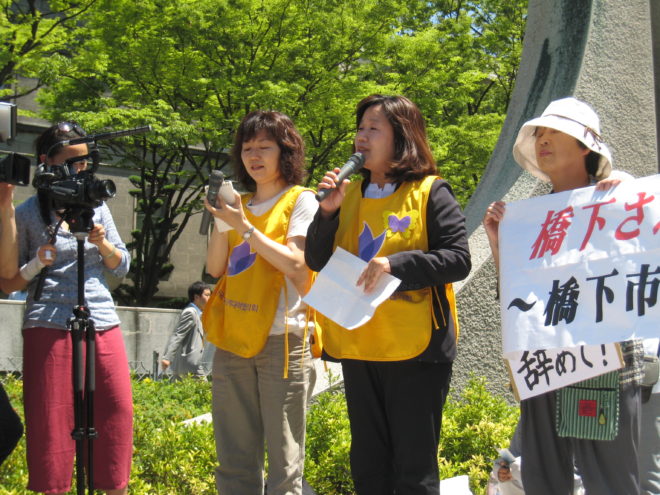
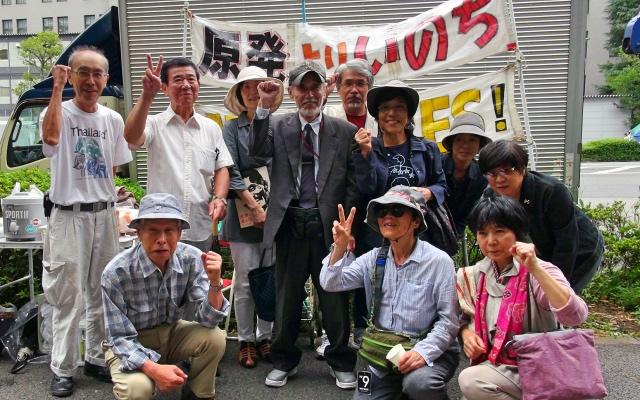

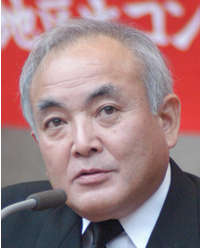

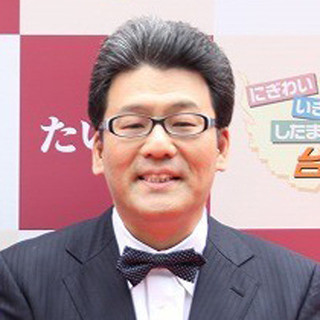
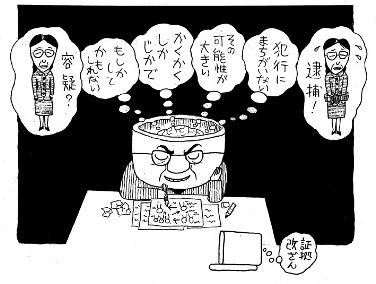





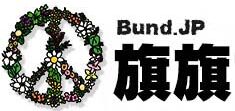

この記事への質問・一言コメントをどうぞ AIコースケと議論しよう!
回答には文字数制限があるため、制限を超えると途中で打ち切られることがあります。